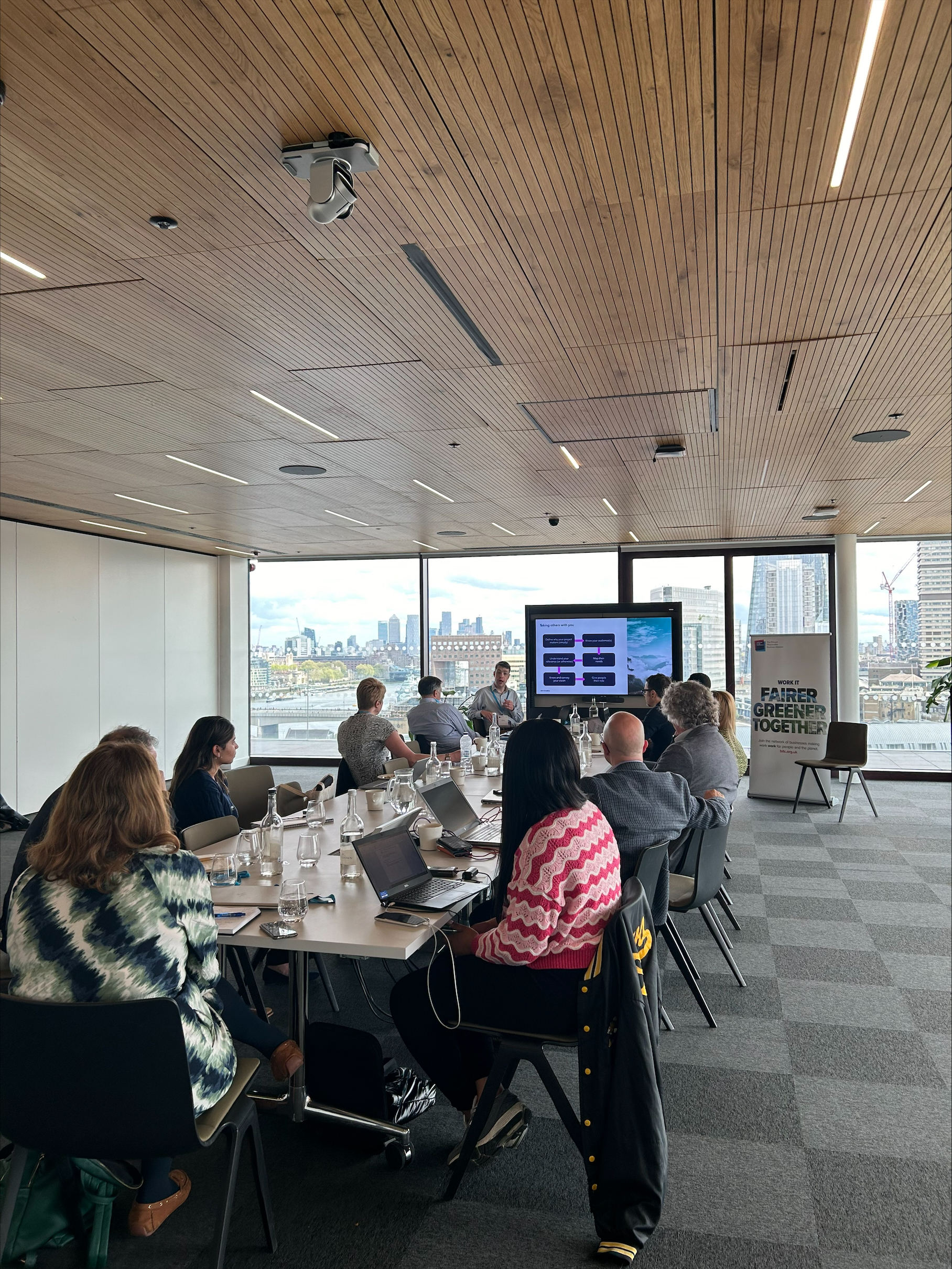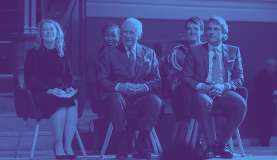Green Skills Lab
Green Skills Lab
Every business must accelerate the just transition to a net zero and climate resilient future to maintain its license to operate. The scale and speed of transformation required means that every job will require green skills, and every employee will need the essential, professional, and technical skills to thrive.
In 2021, Business in the Community (BITC) conducted research with YouGov that showed that only 12% of people think their jobs will change, and only 11% believe their job will require them to develop at least a fair amount of new skills to tackle climate change.
Green Skills Case Studies
Read our case studies about British Land, CITB, Suez and WJ Group’s experience with Green Skills, all case studies can be accessed here.
Green Skills Lab: British Land
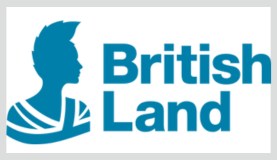
Green Skills Lab: CITB
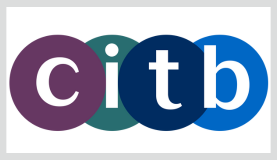
Green Skills Lab: SUEZ
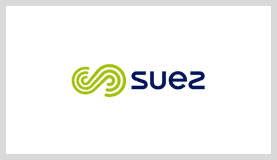
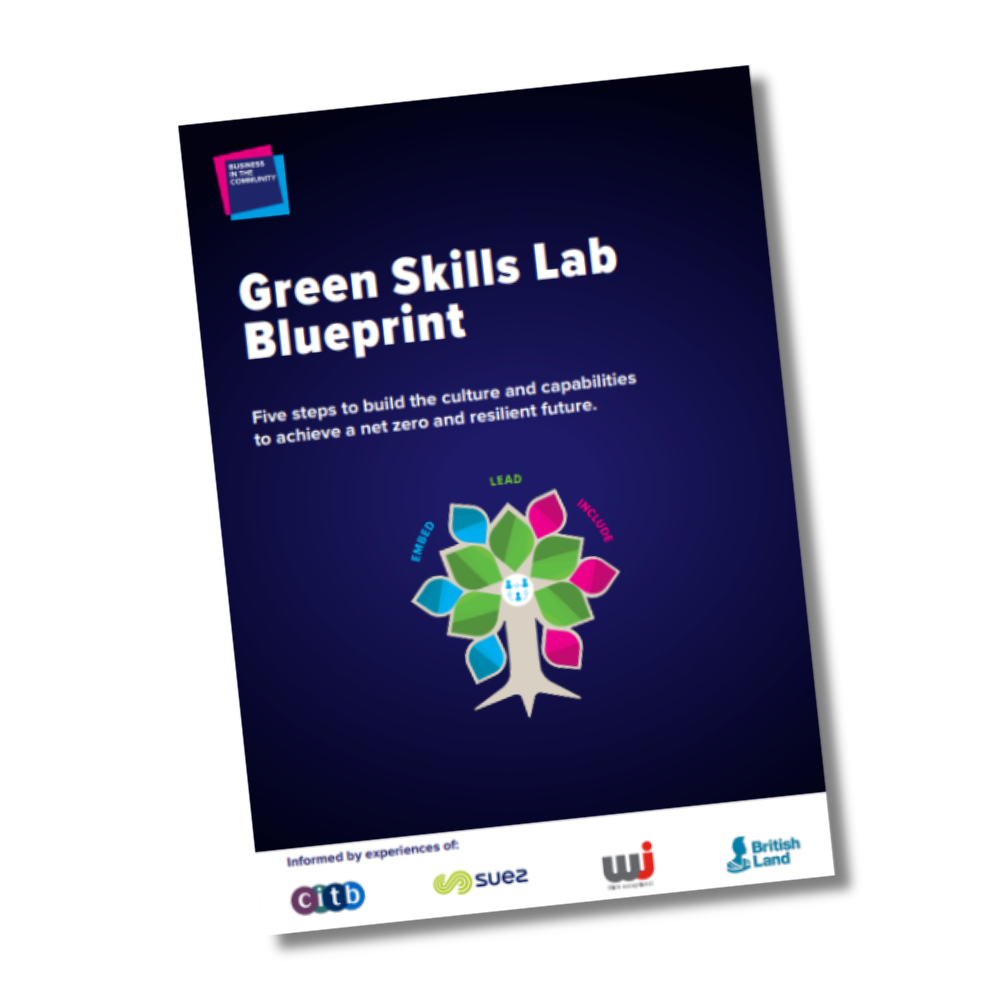
Green Skills Lab Blueprint
Five steps to build the culture and capabilities to achieve a net zero and resilient future
Learn from the leading responsible business who participated in the programme with key actions in a sequential framework that enables organisations to co-create green skills workforce action plans. The Blueprint brings the programme to life offering deep-dive case studies on the specific projects and challenges businesses tackled over 6 months.
Workshop one
The pilot Green Skills Lab programme kicked off on 30 November in London. Participants – City & Guilds, SUEZ, British Land, WJ Group, CITB, and Crown Estate Scotland – heard from guest speakers National Grid and Skills Builder Partnership about how to understand the composition of current workforces, with the ambition to baseline skills to accelerate progress throughout the programme.
Find out more about how clear and simple language can help shape green skills.
Workshop two
Green Skills Lab participants visited SUEZ UK and Greater Manchester Combined Authority’s Renew Hub to explore the future landscape of green skills. Businesses had the opportunity to collaborate on how they are progressing their green skills strategies and discuss how to foster a positive learning culture within their organisations to accelerate a just transition to net zero.
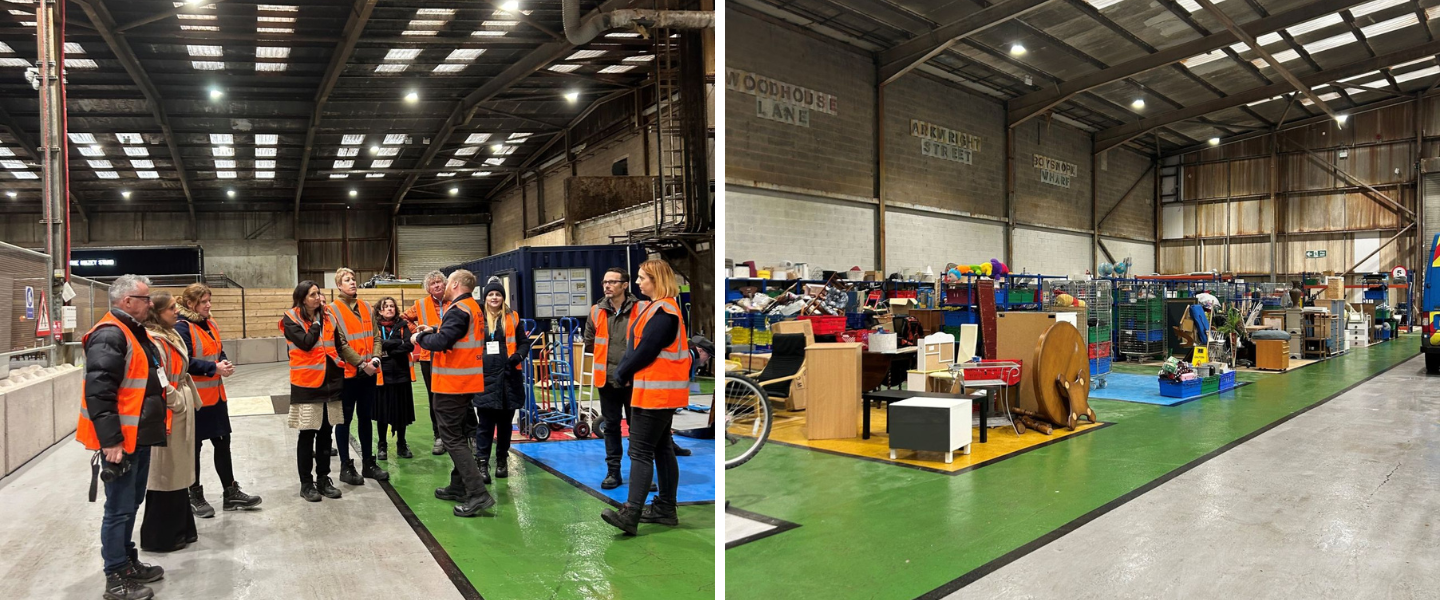
Workshop three
Green Skills Lab participants convened in London to reflect on how businesses have been impacted by transformations and change management, with ways of working rapidly changing due to digital advancements and the pandemic. Discussions included the impact of automation and AI and those demographics who have been left behind or could potentially be in the future. Guest speakers, Sarah Mukherjee and Rebecca Turner from the Institute of Environmental Management and Assessment (IEMA), spoke about the need to address existing inequalities in workforces to unlock potential with green skills and their newly created platform, the Green Careers Hub.
Workshop four
WJ Group hosted ths workshop in Newcastle-under-Lyme, where participants explored inclusivity in the workplace. Building on our Involving Diverse Stakeholders for a Just Transition routemap, we explored what authentic co-creation meant in business. The workshop also explored the role of local governments and business consultation with Local Skills Improvement Plans. Joanna Bonnett from Green Jobs Foundation, a newly formed charity and former Head of Sustainability for Michael Page, shared insights from the Green Jobs: State of Nation report and a new project focused on green interns.
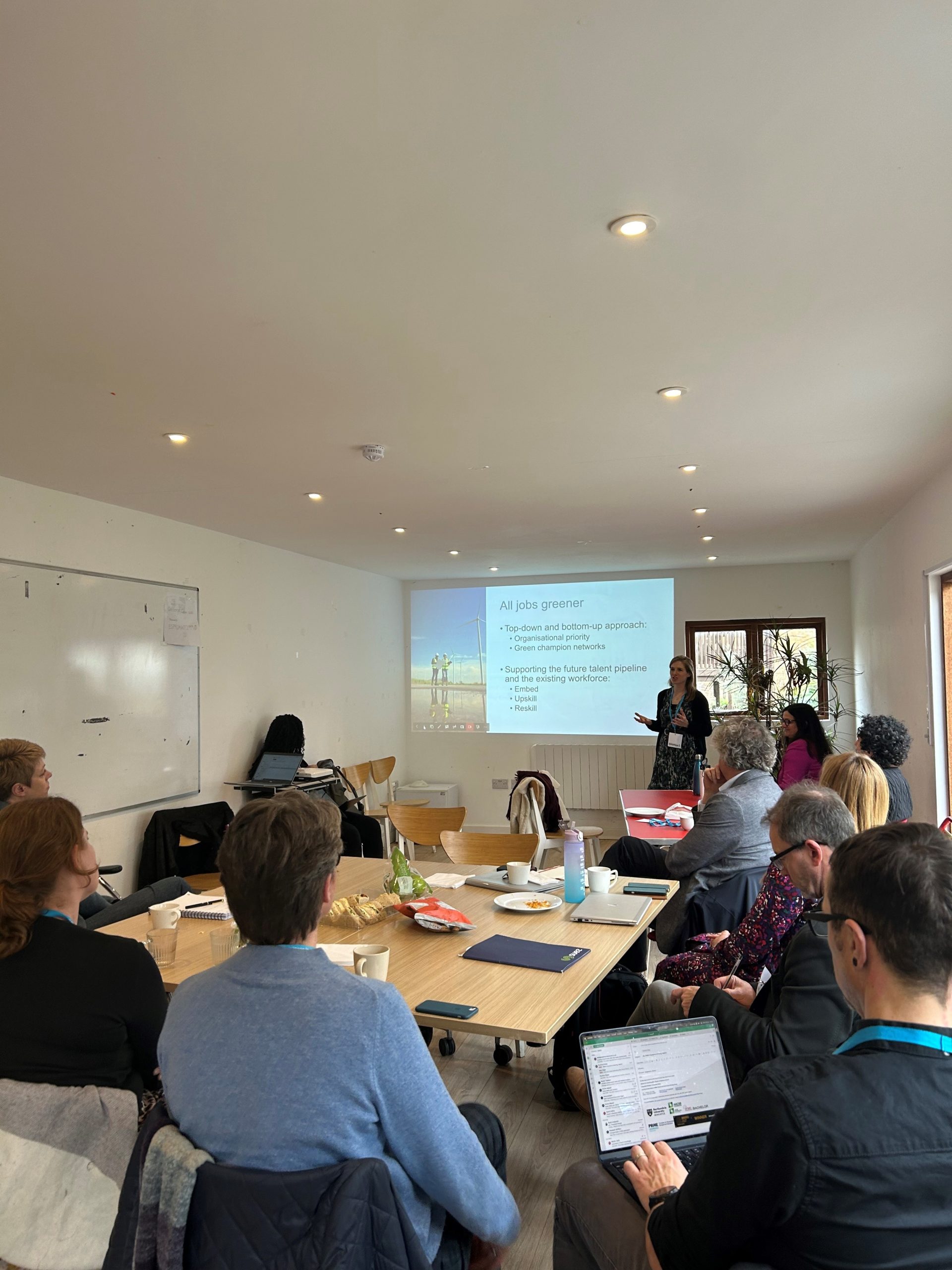
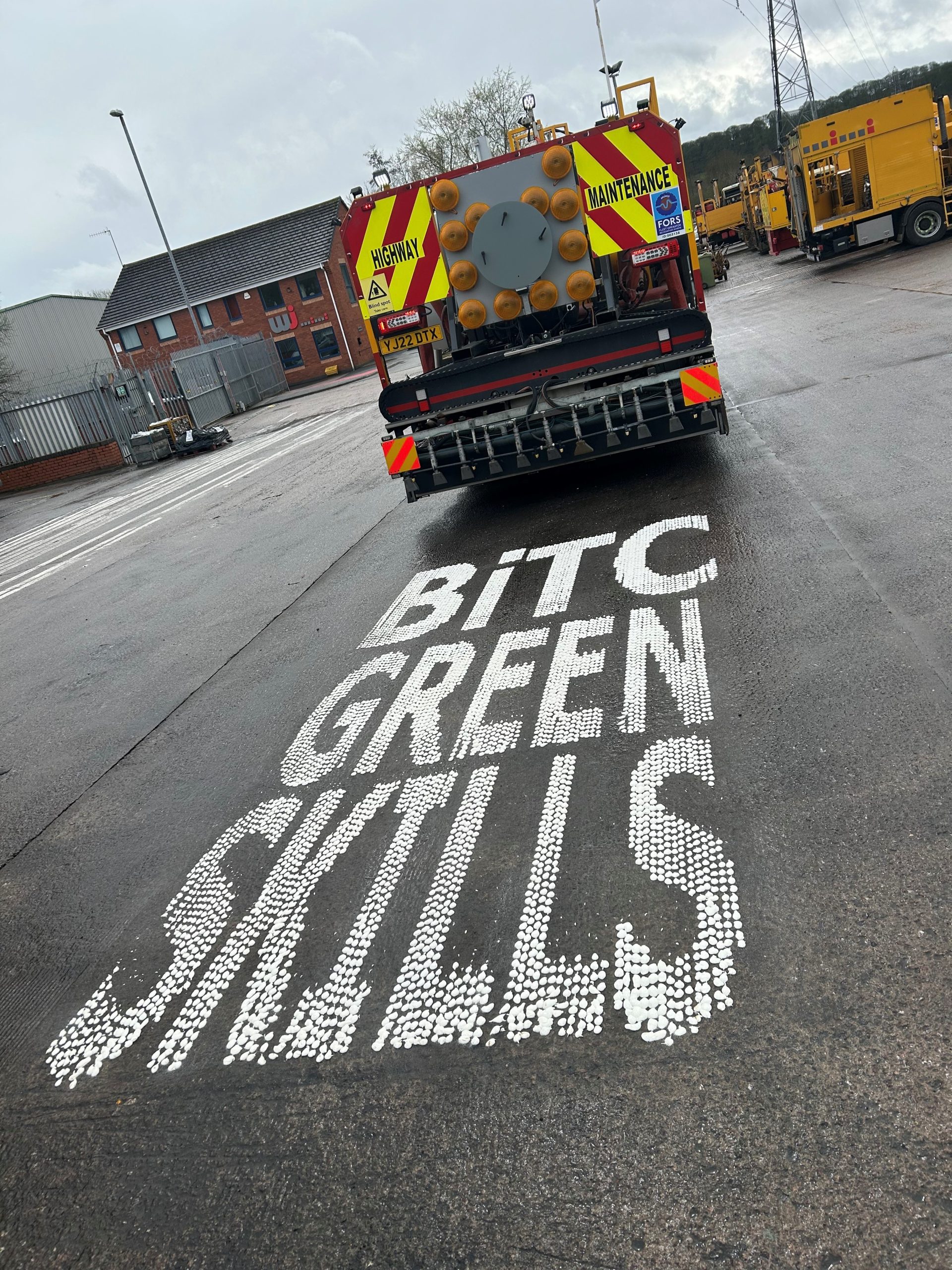
Workshop five
Green Skills Lab participants met at a communication agency, WPP’s office in Central London, for the final workshop which was in theme as businesses had an opportunity to present their green skills action plans, they’ve created throughout the six-month programme. Everyone enthusiastically fed into each other’s projects and spoke about the green skills challenge they’ve identified, how they will evidence this with data, and planned interventions that included a variety of stakeholders.
We welcomed Tom from Hill & Knowlton, Director of the Better Impact team to speak about the significance of clear communication and active engagement with sustainability challenges in business. There should be an awareness in business that internal marketing is as important as external to increase workforce morale, however, there is increasing regulation with the latter, so should be mindful of the messages and claims communicated.
